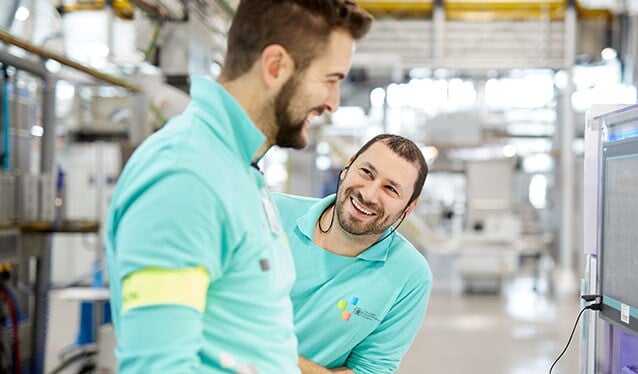Have you ever hit pause on your career? It may have been choices or circumstances that led to the break, but those of us who’ve done it probably remember the lingering worry that, once we’d stepped away, the journey back would prove difficult.
Although experienced by both sexes, and times are slowly changing, women remain the dominant caregivers across many cultures, so the issue still impacts them more than men.
Re-entering the workforce can be intimidating. Therefore, we all have a key role to play to create empathetic work environments where women can make a welcome return, and companies should set up the support systems needed to facilitate this.
Why hiring parents contributes to the workforce
Employers gain numerous advantages by having a diverse workforce—including parents. The experience of parenthood contributes to an individual’s transferable skills, resilience, and work ethic.
Moreover, returning working parents can contribute to a team or project, injecting fresh perspectives, experiences, and insights. A diverse workforce fosters a workplace rich in diverse opinions, varied perspectives, and nuanced leadership styles. This, in turn, positions organizations to develop products tailored to a more diverse and expansive audience.

Alina Khan,
Manager People Engagement,
Philip Morris Pakistan
The journey back into the workforce after a career break is a complex transition that requires time and adjustment. Employers play a crucial role in supporting working parents, particularly mothers, and recognizing the unique challenges they may face. In many areas of the world, including my own country of Pakistan, cultural expectations are for the woman to stay at home, attend to familial needs, and manage household duties.
The impact having children has on working women in Central and Southern Asia is illustrated by the International Labor Organization’s latest Statistics on Women. Only 27.6 percent of partnered women with children under 18 participate in the labor force. This compares with 74.4 percent in North America and Europe.
Supporting working parents: It’s not just about women—it’s about society
In my role at Philip Morris Pakistan, I initiated and led the “Make Your Come Back” program, aimed at empowering women to re-enter the workforce after a break. The program provided valuable opportunities for training, coaching, and regular feedback, thereby facilitating a smoother transition back to work as participants regained confidence and refreshed their skill sets.
I think it’s imperative that employers recognize how important it is to support working parents. It’s not just a “women’s issue,” because there are broader individual and societal impacts. The economic independence earned by a mother who’s returned to work contributes to her empowerment, along with better financial stability and, therefore, improved mental health for the entire household.
Family support is crucial to a mother during her return to work. This extends beyond relatives recognizing the financial contribution the woman is making to the family unit, and includes appreciating the mental health benefits a fulfilling career can bring her. One example is a “Make Your Come Back” participant I worked with who felt hugely supported by going through the job-hunting process alongside her eldest son, a recent graduate.
Read more from Voices of Change
Returning to work: Alina’s six strategies for success
Of course, every country and culture is different, but based on my experience with working mothers in Pakistan, and as the project leader on “Make Your Come Back,” here are my six strategies for success:
- Flexible working hours: Enables all employees, including parents, to align their workday with other needs, including childcare. The McKinsey 2023 Women in the Workplace report underscores the importance of flexibility in retaining employees, with one in five U.S. women citing it as a crucial factor.
- Training and Development: Targeted initiatives and online resources prepare working parents for their return and can address gaps in skill sets following time away. In Pakistan, we ran live “Make Your Come Back” sessions for potential participants on social media with short talks and Q&A sessions. In addition, “keep-in-touch days” during parental leave also help maintain connections and awareness of workplace developments.
- Mentorship: Returning parents may feel out of the loop, so mentorship programs or assigning a buddy provide invaluable support. Regular one-to-one sessions during our Pakistan initiative created a safe space for questions and feedback.
- Equal Pay: Equal pay for equal work is a driving force of collaboration, growth, and innovation. PMI has confirmed that its actual pay practices match its good intentions with the Global EQUAL-SALARY Certification, which acknowledges our commitment to fair pay and fair opportunities for every employee.
- Hiring women leaders: The importance of having role models, especially female leaders, cannot be overstated. Women already make up more than 40 percent of our management positions.
- Recognizing unique challenges: Line managers need to understand that the challenges faced by working parents are different from other employees. I’m not saying it’s harder than any other experience, but the transferable skills and life experience gained from having children should be acknowledged.
By genuinely supporting working parents, companies can help to build a workforce that feels supported, committed, and valued. This significantly contributes to a positive workplace culture, ensuring the best results for the staff, and the company as a whole.
I’m so glad that our “Make Your Come Back” program at Philip Morris Pakistan has had a real impact, and that it continues to break down barriers, empower women, and helps them to thrive in their chosen careers.








